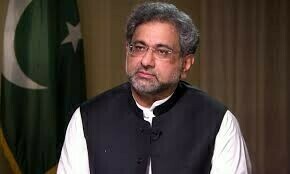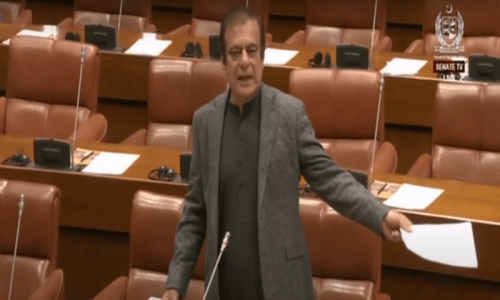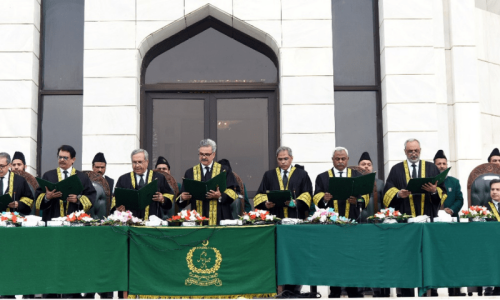ISLAMABAD: The PML-N government opposed the inclusion of former prime minister Shaukat Aziz, former Chief Justice Abdul Hameed Dogar and its own former minister Zahid Hamid as co-accused in high treason case against former president retired Gen Pervez Musharraf.
On November 21, 2014 a special court seized with the high treason trial of Gen Musharraf for imposing emergency on November 3, 2007, ordered to implicate the three as co-accused of the former military ruler.
However, the three former functionaries challenged the order by filing petitions at the Islamabad High Court (IHC). In a reply submitted in response to the petitions, the federal government opposed the directive to include Aziz, Dogar and Hamid in the treason case.
The reply was signed by Abdul Salam Khetran, a section officer of the interior ministry. Additional attorney general Afnan Karim Kundi submitted the reply before the court.
The government argued that the former army chief was the sole accused in the treason case and sufficient material has been presented in the special court to establish a case against him. The reply maintained that subversion of the constitution was a “personal act of Gen Pervez Musharraf for the purpose of personal aggrandizement and a consequential vendetta to defeat a sub judice case against his disqualification for the third consecutive term as president.”
Says the special court does not have jurisdiction to include names
The government pointed out that General Musharraf “announced a state of emergency and signed both instruments, the proclamation of emergency of November 3, 2007 in the capacity of army chief and the oath of office of (judges) order 2007 in the capacity of president of Pakistan. Gen Musharraf admitted and explained the reason for imposition of emergency in his speech on the state television on the day of the notification of the aforementioned instruments.”
The reply said the special court did not have the “jurisdiction to pass impugned order for including the named petitioners as co-accused and to direct a de novo trial, especially when the prosecution had completed and closed the evidence.”
As per the stance of federal government, under High Treason (Punishment) Act, 1973 and Criminal Law Amendment (Special Court) Act, 1976 the federal government could nominate an accused person after thorough investigation against a person.
The special court could not assume the power of the complainant and the investigation agency, the reply added.
A single member bench comprising Justice Athar Minallah of IHC resumed hearing of the case on Wednesday. Further hearing in this matter has been adjourned until May 19. Justice Minallah decided to conduct day to day hearing of this matter from next date of proceedings.
Following the November 21 order, the IHC had stayed proceedings in this matter. So far, the special court comprising Chief Justice Sindh High Court (SHC) Faisal Arab, Justice Tahira Safdar of Balochistan High Court (BHC) and Justice Yawar Ali of Lahore High Court (LHC) convened six meetings but could not proceed in this matter because of the IHC’s stay order.
The complaint against General Musharraf was lodged before the special court in December 2013 and the former military chief was indicted on March 31 for high treason.
The prosecution had booked Gen Musharraf under five charges which are related to imposition of emergency, sacking of judges and issuing Provisional Constitutional Order (PCO).
Published in Dawn, May 14th, 2015
On a mobile phone? Get the Dawn Mobile App: Apple Store | Google Play
















































